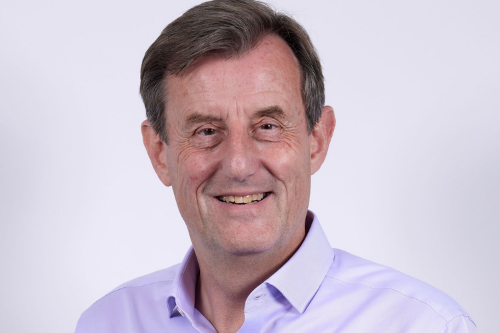

One of the challenges for our market is that insurance is often a grudge purchase that people resent having to make. It is also an intangible one that the vast majority of people never, fortunately, have to use and as a result its value largely goes unrecognised, commented Alistair Hardie (pictured), group CEO of Jensten Group
“Whereas,” he continued “if you look at a sausage factory, where people have got lots of choices, they actually want the product, so they go out and look for it. Raw materials come in one end and a great product comes out the other. That is in many respects the ultimate alternative to insurance and why the market has to work hard to help customers buy the right products for their needs.
“Fortunately, my technical skills and proven experience lie in insurance, not sausages and, I have to say that as an industry, it has been very good to me. And while it may not be a product that people want, I passionately believe that it is something that both people and businesses need, and that the vast majority of the time does a great job for customers - something I think we do forget quite a lot of the time.”
Unlike those who came to their insurance leadership roles having started their careers as actuaries, underwriters, or brokers, Hardie rose up the ranks from an initial role working in sales in the 1980s. It was, he said, an experience that instilled in him from the earliest possible point that basic sales principle of “the customer comes first”, a mantra that has served him well throughout his career. Since then, he has owned and operated a variety of businesses, across a range of industries, before being approached by private equity business Livingbridge last year – just as the COVID pandemic struck - to lead the Jensten Group.
Hardie noted that even the challenges presented by the COVID crisis had not stopped his first 12 months from being a fantastic experience. During his first few weeks, he met only a few other team members in person, he said, which was contrary to his managerial style of having face-to-face contact with people and engaging with them on a personal level.
It’s too hard to really get your arms around a business and understand what you need to do without that personal interaction, he added, so he found a workaround, and blocked out a week in his diary so that he could meet everybody in the management team, one by one, to speak with him in person, albeit in a socially distanced manner.
“I sat and talked to people for hours and, by the end of that week, I was clear on what we were trying to achieve, what we had to deal with, and what the challenges were,” he said. “What has been great is that the business has actually done really well during the pandemic – our core franchise business has grown organically from March to March, which is our financial year. We’ve added new franchises, we’ve acquired businesses and our wholesale business has also performed well.”
He still hasn’t been able to physically visit every one of the group’s offices or meet every member of staff across these locations face to face, Hardie said, but, on the other hand, COVID had offered an unparalleled opportunity for everybody to develop new communication skills and engage with new communication channels. In addition, he said, the crisis had provided a steep learning curve regarding how critical it is to be flexible and adaptable to change. This is something he and his team bear closely in mind as, despite how much they are enjoying the current opportunities to catch up in person, they remain aware that this could change at any time.
“I think it’s really important not to be dogmatic at the moment about principles such as our working environment and whether or not we should be working in an office,” he said. “Instead, we need to judge how our people are feeling. I would say probably one of the biggest leadership attributes we need at the moment is empathy and that’s empathy with our own people and with our customers.
“Both our people and our customers are still going through massive turmoil and the next 12 months will bring new challenges, such as potentially having to get used to a new working environment. We need to be empathetic, and to listen to our people and our customers, and make sure that we’re not heading in a different direction from what matters for [them].”
Various companies, noted Hardie, are coming out with concrete announcements regarding heading back to the office full-time or office closures. “While it’s understandable why they might choose to do so, it feels a little premature to me.,” he said. “There’s still a lot of change happening in the external environment and people have had to get used to a lot of upheaval in a very short amount of time; what they need now is for corporations to show flexibility.”
“There’s a complex environment [unfolding],” he said, “there’s a labour shortage out there now, partly as a result of Brexit, partly a result of people re-evaluating their lifestyles and what they want to do and where they want to work. So, I think businesses that are overly dogmatic about what their working environment looks like are going to find themselves disadvantaged in the marketplace. It’s about staying flexible and responsive and having empathy for people. Because being valued as a caring employer that truly believes in its people and wants to look after them – well, I think that’s critical.”
